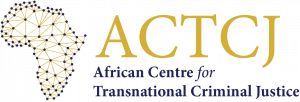Doctor of Laws (7921)
August 11, 2023Master of Laws in Legal Pluralism and Family Law
August 30, 2023The LLM in Transnational Criminal Justice offers students an opportunity to pursue a specialisation in transnational criminal justice through a combination of advanced taught modules and research. Students develop and sharpen their understanding of concepts and theory in the field and lay a solid foundation for further studies or practice.
LLM/MPhil by Coursework
The LLM in Transnational Criminal Justice by coursework offers students an opportunity to pursue a specialisation in transnational criminal justice through a combination of advanced taught modules and research. Students develop and sharpen their understanding of concepts and theory in the field and lay a solid foundation for further studies or practice. The programme examines how the criminal law aspects of international law and the international law aspects of criminal law combine to provide a legal mechanism for national and international responses to human rights violations both at the level of the international criminal justice system and in the context of transitional justice in post-conflict societies. The programme consists of two modules—International Criminal Law (ICL) and Transitional Justice (TJ). Both modules are offered in the first semester and students write a thirty thousand-word mini-thesis in the second semester.
International Criminal Law
This module traces the historical origins of ICL, its normative evolution, and its institutional development as a branch of public international law. It engages with the theoretical foundations and practical application of ICL principles focusing on the core crimes of genocide, war crimes, crimes against humanity and the crime of aggression. It examines the mechanisms and institutions of
enforcing ICL such as the International Criminal Court and other international criminal tribunals. The module also considers critical approaches to ICL and offers a critical reflection on ICL, its present challenges and prospects in the struggle for accountability and an end to impunity.
Transitional Justice
This module examines the concept of TJ in countries undergoing transition from violent conflict and human rights abuses to a peaceful and democratic society based on the rule of law and justice. It draws on contemporary case studies in African countries and elsewhere in the world navigating the delicate balance of transition from violent conflict to democratic society governed by the rule of law, peace and justice while promoting truth, reconciliation and ensuring accountability. Core theoretical and practical issues are examined, including the peace/justice and truth/reconciliation debates; the choice of an appropriate legal framework for achieving peace and justice; and regional dynamics and transitional societies in a global context. The module will include critical reflection on traditional approaches to TJ processes, successes and failures, challenges and opportunities, as well as possible alternative approaches
Some of the benefits of the programme include:
Our students gain international experience, develop their inter-cultural competences and build their networks through our programme’s international partnerships.
Selected students:
- Have the opportunity of spending a semester at Humboldt University in Germany as exchange students;
- Receive scholarships to attend the International Criminal Law Defence Seminar, jointly organised by the Office of Public Counsel for the Defence at the International Criminal Court and the United Nations Interregional Crime and Justice Research Institute, Turin, Italy;
- Attend the Utrecht University-UWC Collaborative Online International Learning Programme.
For whom?
This programme is ideal for law graduates seeking to pursue a career in academia, NGOs, IGOs, government departments or agencies and think tanks. Policy-makers, legislators, legal advisers, diplomats, legal consultants, members of civil society groups and international organisations would find the programme rewarding.
LLM/MPhil by Dissertation
This degree programme is offered by dissertation only.
PhD/LLD
The Doctor of Laws programme offers highly motivated students the opportunity to pursue research in topics of under the supervision of one or more experts in the field. Interested applicants should send an abstract, a CV and full academic transcripts to John-Mark Iyi (admin-actcj@uwc.ac.za).
Funding Opportunities:
There may be partial bursary available for qualified applicants
Admission Enquiries
ACTCJ Admin

